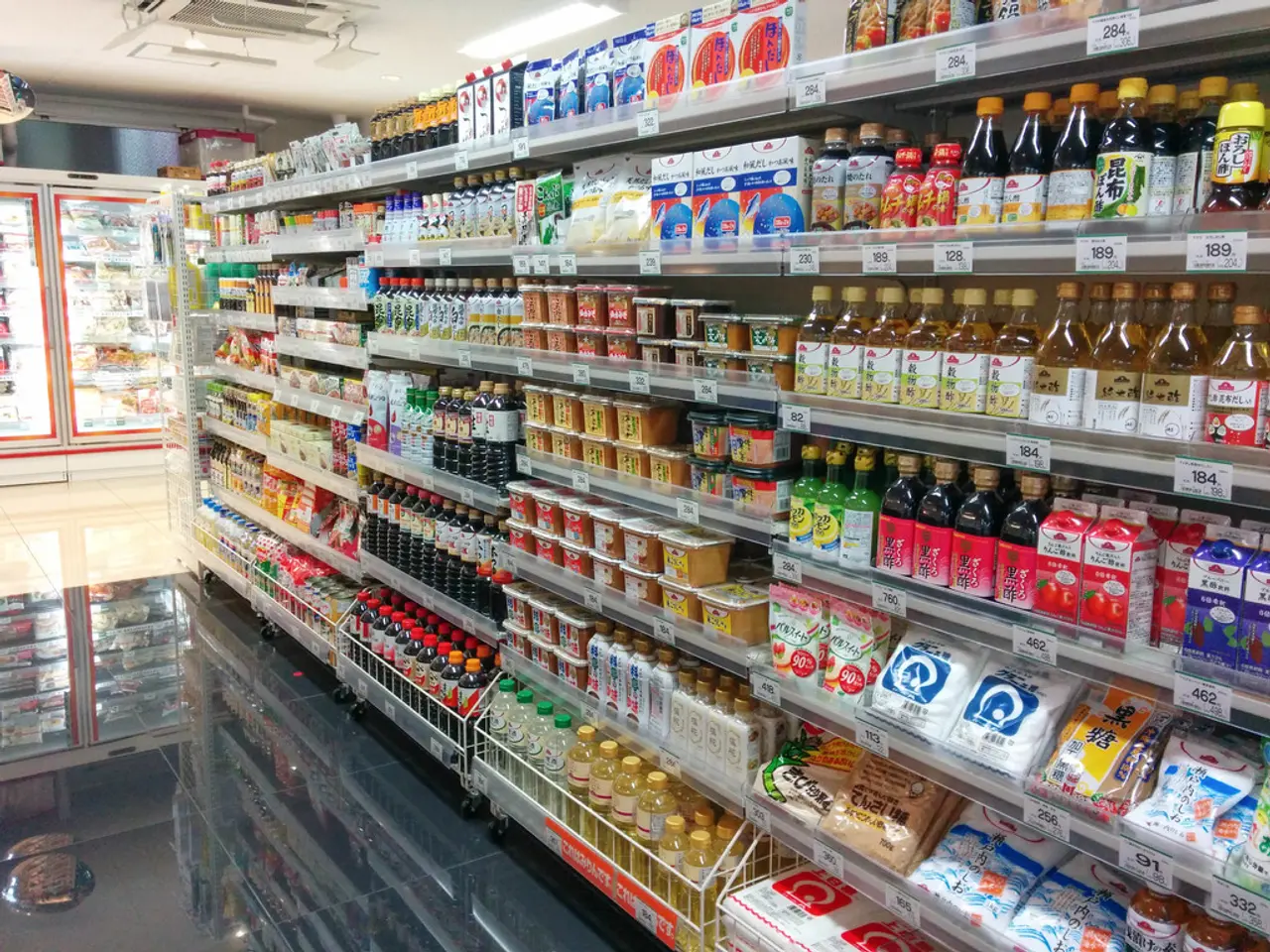Rapid consumer demands drive a surge in delivery services shifting towards weekly delivery schedules.
Delivery wars heat up: Hanjin's seven-day delivery schedule sparks union protests
Delivery trucks adorned with Hanjin Delivery logos are parked outside their headquarters in Jung District, central Seoul, as unionized parcel delivery workers stage a protest against the company's new seven-day delivery schedule on April 17. [YONHAP]
Unionized delivery workers have raised their voices in opposition to Hanjin Delivery's recent decision to implement a pilot seven-day delivery schedule. The move has triggered protests, with 88% of the workforce voicing their dissent in a survey [1][2].
Lack of union consultations and concerns over working conditions
The primal cause for the protest is the unilateral decision-making and uncertainty over workplace conditions by Hanjin's management, in stark contrast to competitors like CJ Logistics, which secured agreements by promising a five-day workweek through rotating shifts [1][2]. Union leaders argue that Hanjin's rush to implement the seven-day schedule risks overworking their team as the company's smaller workforce and broader delivery zones pose challenges when it comes to implementing efficient rotating shifts effectively [2].
Key issues at the forefront
- Inequitable decision-making: Hanjin's management opted against prior negotiations with the union, unlike CJ Logistics, which secured agreements and adhered to the five-day workweek [1][2].
- Workload anxieties: Hanjin's couriers already work six days a week, and the additional day's work under the new schedule could potentially strain their capacity [2].
- Protecting labor rights: Unions call for mutual recognition of changing consumer expectations (such as weekend deliveries) that respect workers' rest periods [1].
Industry implications
- Intensifying competition: Companies like CJ and Hanjin are jumping on the seven-day delivery bandwagon to keep pace with market leader Coupang [2].
- Labor disputes and service disruptions: If Hanjin's unresolved disputes persist, it could deter other firms from expanding their delivery schedules without union support [1][2].
- Long-term sustainability of the workforce: Balancing consumer demand for speed with sustainable labor practices is becoming increasingly difficult, potentially necessitating industry-wide changes to shift systems or hiring practices [2].
Whether South Korea's delivery sector prioritizes speed or worker welfare is the lingering question in the face of burgeoning e-commerce demands, as the sector grapples with the consequences of Hanjin's move.
[1] Hanjin Delivery disputes 7-day delivery schedule with union[2] Delivery Giants CJ and Hanjin Expand Delivery Days to Counter Coupang, Challenges Lie Ahead for Labor Relations
- The unionized delivery workers, citing concerns over working conditions and a lack of union consultations, have reportedly criticized Hanjin Delivery for its unilateral decision to introduce a seven-day delivery schedule.
- In response to Hanjin Delivery's move, Yonhap news agency has reportaptly termed the current situation as delivery wars heating up in South Korea's burgeoning e-commerce market.
- In light of the seven-day delivery schedule, books, technology products, and other business goods may now face earlier deliveries due to Hanjin Deliveries' expanded operations, potentially impacting businesses reliant on their services.
- With CJ Logistics ensuring a five-day workweek through rotating shifts, the concerns over overworking Hanjin's team in the face of a less flexible workforce and broader delivery zones become a potential industry concern moving towards 2025, when finance and technology industries anticipate new advancements.
- Ultimately, the decision by Hanjin Delivery to implement a seven-day delivery schedule may have long-lasting implications for the warehousing and logistics industry, potentially driving industry-wide changes in shift systems or hiring practices to ensure sustainable labor practices.






